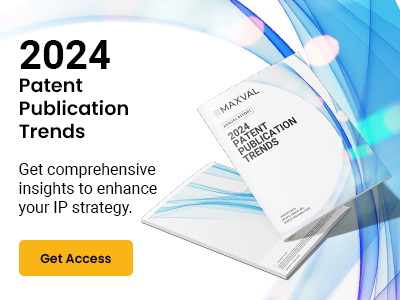Unquestionably, Generative Artificial Intelligence (AI) has emerged as a groundbreaking technology with profound implications for various industries. In the realm of Intellectual Property (IP) management, its potential is particularly transformative, offering a range of tools to enhance efficiency, streamline processes, and provide invaluable insights.
The Role of AI in IP Management
Rules-based engines have traditionally helped automate tasks such as invention disclosure routing, trademark filings, and patent docketing. By following predefined rules, these engines allow IP professionals to execute tasks with greater speed and consistency while minimizing errors.
However, generative AI represents a step forward in automation. Unlike conventional AI, which relies on algorithms, generative AI can create new content based on vast datasets it has been trained on, known as Large Language Models (LLMs). This opens up new possibilities for IP professionals, from drafting patent applications to generating natural language reports and legal responses.
How Generative AI Can Revolutionize IP Management
The integration of generative AI into IP management systems can fundamentally alter how IP tasks are handled. There are several areas where this technology can make a substantial impact:
- Patent Prosecution: Generative AI can analyze historical cases and patent examiner behavior to recommend the next best actions in the patent prosecution process. It can also assist in drafting responses, providing IP professionals with the ability to expedite and optimize their workflows.
- Report Generation: One of the most time-consuming tasks for IP professionals is creating detailed reports. Generative AI can simplify this process by creating a more natural, language-based interface vs SQL or other report-writing interfaces. GenAI can also create more powerful and insightful analysis by pulling data from various systems, including HR, IP, and financial databases. Generative AI can further assist with the analysis of reports to uncover meaningful results and recommendations. Importantly, AI-generated reports must explain how conclusions were reached, ensuring trust in the data.
- Code Generation: In a bid to create a unified source of truth, IP management systems often need to integrate data from disparate sources via APIs. Generative AI can write and test code to speed up the integration process, enabling faster and higher-quality deployment
- Prior Art Searching and Patent Drafting: Generative AI can analyze patent data to suggest relevant terms and phrases for drafting patents, saving time and improving accuracy. Additionally, it can scan extensive databases to provide comprehensive prior art searches, aiding in the evaluation of an invention’s novelty and inventiveness.
- Trademark Watching and Brand Protection: AI’s ability to continuously monitor new trademark filings and identify potential conflicts or infringements can automate much of the trademark clearance process. This reduces the manual effort required for brand protection.
Addressing Ethical Challenges
With the rapid advancement of generative AI comes a need for responsibility. One of the key challenges is ensuring the quality of training data, which can greatly affect the reliability and accuracy of AI-generated outputs. Organizations must prioritize using high-quality, diverse datasets to avoid potential errors or biased results.
Moreover, in legal contexts, transparency is crucial. Generative AI models must explain their decision-making processes to foster trust and mitigate liabilities. A balance must be struck between automation and human verification to ensure accuracy and maintain the integrity of IP management.
The Future of IP Management
Generative AI offers unparalleled opportunities for innovation in IP management. Early iterations of Generative AI have been promising, but not necessarily ready for ‘prime-time.’ MaxVal feels time and additional iterations will be necessary in order to gain the faith and trust of IP professionals. But, by embracing this technology, IP professionals can harness its potential to enhance their processes, safeguard intellectual property, and drive future innovations. However, the journey toward integrating AI into IP management is not without its challenges, and ongoing collaboration between legal experts, developers, and IP professionals will be essential to ensuring its success.




